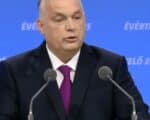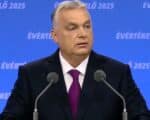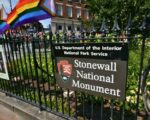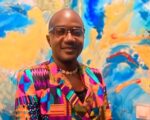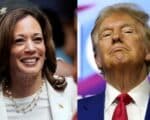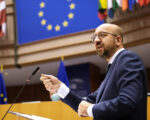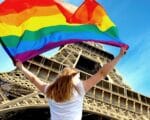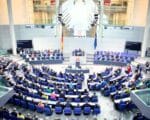>> Seoul Gay Pride Organisers Vow to Defy Police Ban
[spacer]
Plus de 20.000 personnes devaient y prendre part dans les rues de la capitale sud-coréenne le 28 juin à l’issue du Korea Queer Festival. Mais des associations chrétiennes, qui avaient déjà perturbé la marche l’an dernier, ont délibérément déclaré auprès des autorités leur intention d’emprunter le même trajet, le même jour à la même heure.
« Nous ne resterons pas les bras croisés alors que nos valeurs sociales sont menacées (…) et que les vies de nos enfants sont en péril », ont justifié cinq grandes associations protestantes.
Craignant des heurts, la police a annoncé la semaine dernière l’interdiction pure et simple de la gay pride.
Une décision inacceptable pour Woo Ji-Young, directeur du comité organisateur, qui accuse les autorités de céder aux injonctions des groupes religieux.
« La police devrait protéger la liberté d’expression plutôt que de se faire la complice de ceux qui cherchent à la bâillonner », a-t-il dénoncé. « La parade aura lieu, interdiction ou pas », a-t-il ajouté.
Ces groupes chrétiens, qui revendiquent des millions de fidèles, harcèlent quotidiennement le maire de Séoul, Park Won-Soon, qui avait déposé l’an dernier un projet de charte sur les droits de l’Homme incluant un alinéa sur la protection des minorités sexuelles.
Depuis, des militants se réunissent chaque jour devant l’hôtel de ville en apostrophant l’élu qu’ils surnomment « le maire de Sodome ».
[spacer]
>> Organisers of South Korea’s annual gay pride festival vowed today to push ahead with a planned parade in downtown Seoul, despite a police ban and protests from conservative Christian groups.
More than 20,000 people had been expected to take part in the street parade on June 28 at the end of the Korea Queer Festival that kicks off next Tuesday.
But there was fervent and vocal opposition from conservative Christian groups, and police last week banned the parade, citing concerns over public safety and traffic disruption.
Gay and transgender Koreans live largely under the radar in a country that remains deeply conservative about matters of sexual identity and where many still regard homosexuality as a foreign phenomenon.
Gay rights activists say some progress has been made in recent years, but the police ban on the parade is the first since the annual Queer Festival began 15 years ago.
Woo Ji-Young, executive director of the festival’s organising committee, accused the police of caving in to pressure from conservative Christians.
« The police should protect the rights of free expression, rather than siding with those trying to suppress it, » Woo told AFP.
« The parade will go on whether the police ban it or not, » Woo said, while adding that activists would continue to press for the police decision to be reversed.
Violating laws on public rallies can draw a fine of up to two million won ($1,800) or even a jail term of up to two years, but Woo said the organisers were willing to take the risk.
The annual parade has in recent years attracted a growing number of participants, but also an equally swelling crowd of critics.
Last year, Christian activists disrupted the march by lying down in the street, and this time around they tried in advance to block the event by filing competing applications for the same dates and venues.
Woo said the organisers had been forced to switch venues several times.
AFP




